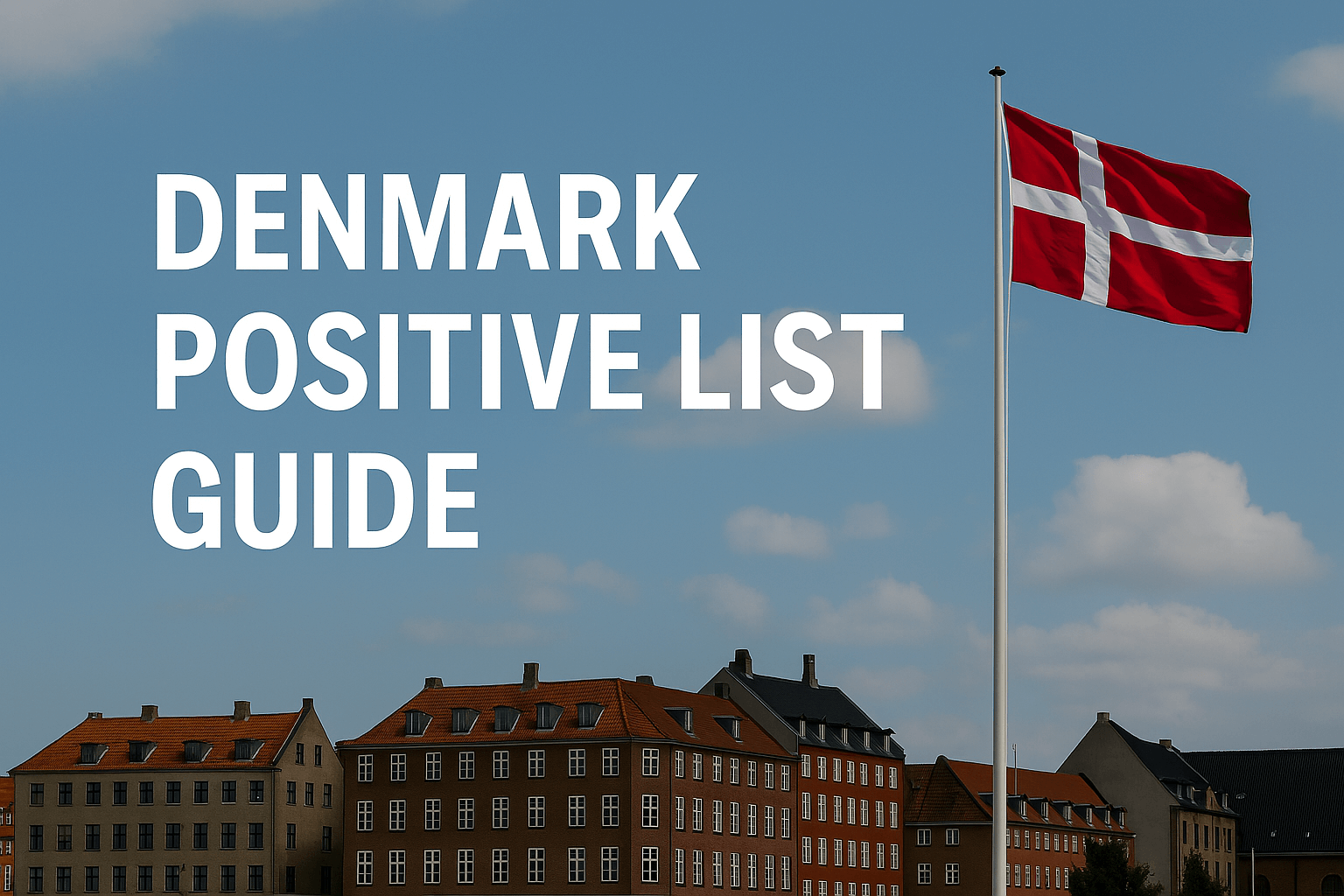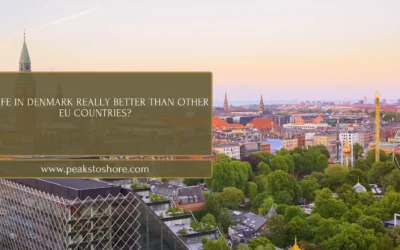Have you ever thought about working in Denmark? Do you want to use your skills to live in a country with a high quality of life? You’re not alone. Many professionals dream of moving to Denmark, and the Positive List can help. This guide shows you how to use the Denmark Positive List to get a skilled job and visa. We’ll cover each step, share easy tips, and help you start your journey. Ready to make Denmark your new home? Let’s begin!
What Is the Denmark Positive List?
First, let’s understand the basics. The Denmark Positive List is a list of jobs that need more workers. If your job is on this list, you have a better chance to work legally in Denmark. The government made this list to attract skilled workers from outside the EU and EEA.
There are two types of lists:
- For Higher Education: Jobs like engineers, IT specialists, doctors, architects, and pharmacists. You need a bachelor’s degree or higher.
- For Skilled Work: Jobs like electricians, welders, carpenters, and social care workers. These need vocational training or a diploma.
The lists update twice a year—on January 1 and July 1. So, check the latest version on the New to Denmark website. You’ll find details like quotas or special requirements for some jobs. For example, social care workers have a quota of 1,000 permits.
Why Is the Positive List So… Well, Positive?
The Positive List is helpful because it makes getting a job and visa easier. It focuses on jobs Denmark needs, so you have a faster path to move there. Here’s how it works:
- Find your job on the list.
- Apply for jobs in Denmark.
- Get a job contract.
- Apply for a work and residence permit.
This process can seem hard, but the Positive List makes it simpler. Employers often want to hire for these roles, and the visa process is quicker. Plus, Denmark offers great benefits like good healthcare and work-life balance. That makes the effort worth it!
What Jobs Are on the Positive List?
The Positive List has many jobs for different skills. Here are some examples, but they can change:
- Higher Education Jobs:
- Civil engineers
- Doctors (especially in rural areas)
- IT consultants
- Architects
- Pharmacists
- Skilled Work Jobs:
- Electricians
- Welders
- Carpenters
- Social care assistants
- Bricklayers
These jobs show what Denmark needs right now. For instance, healthcare jobs are in demand because of an aging population. IT roles are also popular as Denmark grows in tech. Always check the New to Denmark website for the latest list and requirements.
Do You Qualify for the Positive List?
Before applying, make sure you qualify. Ask yourself these questions:
- Does your education match the job? Higher education jobs need a degree, while skilled work needs training.
- Do you have work experience? Many jobs want experience, so show this in your CV.
- Are your qualifications recognized in Denmark? Some jobs, like doctors, need Danish authorization.
If you’re unsure, get your degree checked. Use Aarhus University’s ENIC-NARIC center or the Danish Agency for Higher Education and Science. This step ensures your credentials work in Denmark. It’s a small task that helps a lot.
Where Can You Find Jobs in Denmark?
Now, let’s find a job. Here are some great places to start:
- Jobindex.dk: A big job portal with many listings.
- Workindenmark.dk: A site for international job seekers, often with Positive List roles.
- LinkedIn: Connect with Danish companies and recruiters.
- Company Websites: Many big companies post jobs in English.
Here’s a TIP : Filter for jobs in English or from companies that hire internationals. Sectors like IT and healthcare often welcome non-EU workers. Also, join expat groups online or attend virtual job fairs by Workindenmark to network.
What About the Language Barrier?
Worried about speaking Danish? Don’t be! Many workplaces use English, especially in IT, engineering, and academia. So, you can start without knowing Danish. But learning Danish helps a lot. It shows you want to fit in, and it makes daily life easier—like talking to coworkers or shopping.
The good news? Denmark offers free Danish classes for newcomers. Start with simple phrases to feel confident. Locals appreciate your effort, even if your pronunciation isn’t perfect. They’ll often switch to English if needed. So, balance English with learning Danish to stand out.
How Does the Visa Application Work?
Got a job offer? Great! Now, apply for your work and residence permit. The Danish Agency for International Recruitment and Integration (SIRI) handles this. Here’s what you need:
- A job contract with your salary, hours (usually 37 per week), and conditions.
- Proof of qualifications, like diplomas or certificates.
- A valid passport.
Apply online through SIRI’s portal. The fee is about DKK 6,290, and it takes around one month to process. Your permit is tied to your job. If you change jobs, you’ll need a new permit. This visa is only for Denmark, not other Schengen countries.
What Happens After Your Visa Is Approved?
Once approved, prepare to move. Your permit length depends on your contract. Permanent contracts can give up to four years. Temporary ones last for the contract plus six months to find new work. You’ll need a Danish bank account within 180 days. Your salary must go into this account. This can be tricky without a Danish address, but basalbetalingskonto.dk can help.
Denmark’s cost of living is high. A one-bedroom apartment might cost 12,000–15,000 DKK monthly. But the quality of life is amazing, with great healthcare and transport. You must support yourself, as some public benefits aren’t allowed.
Can You Bring Your Family?
Yes, you can! If you get a Positive List permit, your spouse and children can apply for family visas. You can apply together or soon after. Denmark has lowered salary rules for some jobs, making it easier for families. This support helps you settle in with your loved ones. It shows Denmark cares about your family’s transition too.
Final Tips Before You Apply
Here are some easy tips to help you:
- Make your CV Danish-style—simple and clear.
- Write a strong cover letter for each job.
- Show your global experience—it’s a plus!
- Check if your employer can hire foreigners under the Positive List.
- Explore More: Read more about culture and living in denmark.
These tips will make your journey smoother.
If your skills match Denmark’s needs, the Positive List is a great way to work here legally. Denmark offers a high quality of life and work-life balance, even with cold winters! The process might seem tough, but you can do it with preparation. So, why not check the Positive List today? Share your plans below!






0 Comments